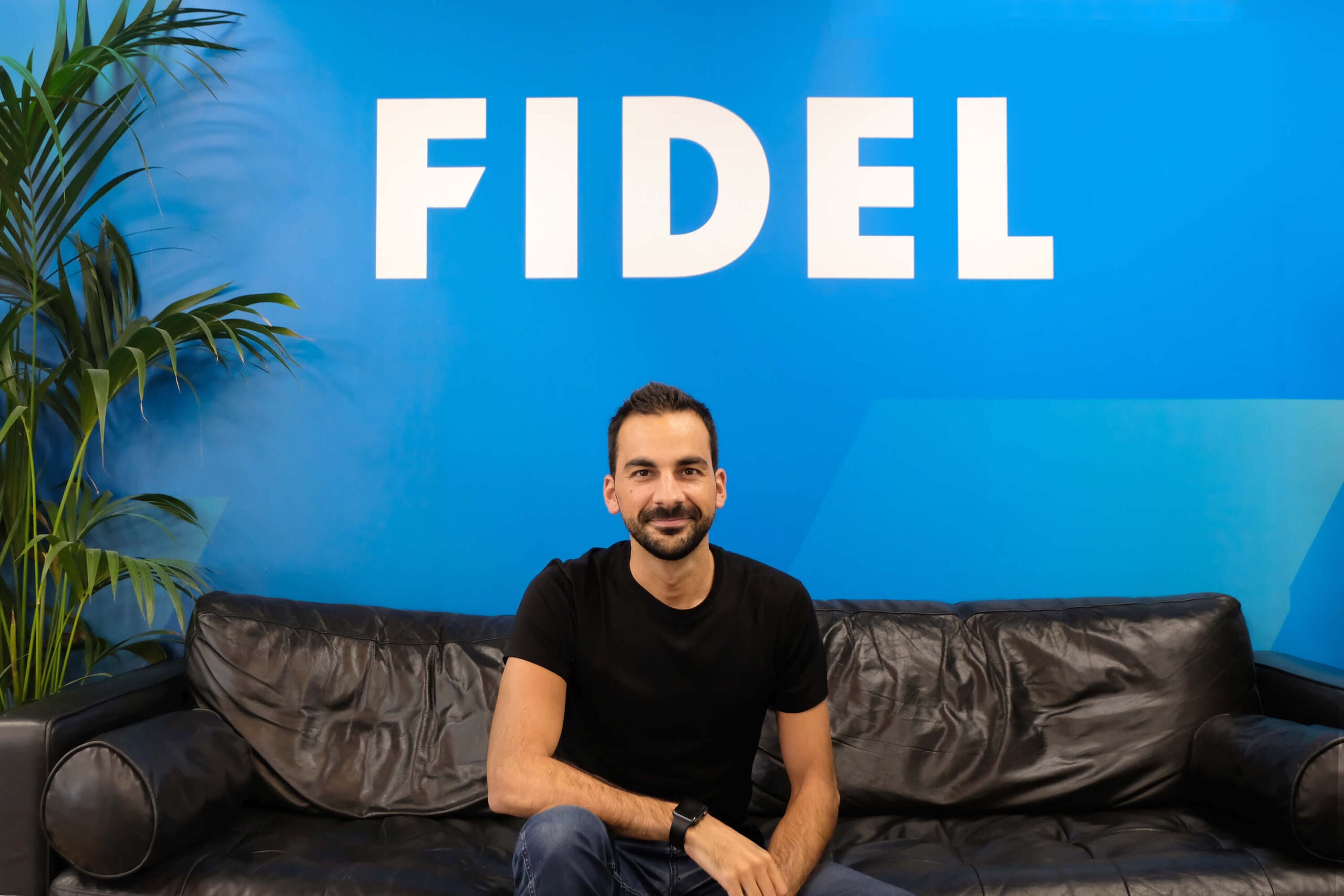
Andre Elias is the CTO and co-founder of Fidel, a fintech providing financial infrastructure APIs for developers to build programmable experiences around real-time payment card transactions.
Launched in 2018 by Elias and Dev Subrata, Fidel’s APIs are used by startups through to global enterprises including Google, British Airways, TopCashback, Royal Bank of Canada, and Blackhawk Networks, and are supported by the world’s largest card networks, including Visa, Mastercard and American Express.

Access deeper industry intelligence
Experience unmatched clarity with a single platform that combines unique data, AI, and human expertise.
The Fidel CTO founded the London-headquartered company after spending years discovering a solution to access payments data before deciding there was more opportunity in sharing it with other developers.
In the latest Q&A in our weekly CTO Talk series, Elias explains why we’ve only scratched the surface with financial infrastructure APIs, shares why it’s “important to keep the talent bar high” and why a startup CTO needs to be versatile.
Rob Scammell: Tell us a bit about yourself – how did you end up in your current role?
Andre Elias: After finishing my master’s degree, I knew I wanted to solve big problems and start a company. I met Dev Subrata, my co-founder and CEO today, and left Lisbon to start Fidel with him in London. We set out to solve the lack of data in the offline space. After spending many years trying to figure out the necessary infrastructure, we finally discovered a solution by partnering with the major card networks.
We realised Fidel could become a provider of financial infrastructure APIs, helping developers build applications by accessing payment data. I’ve since moved back to Lisbon and opened a Fidel office here with 30+ engineers. It’s been incredibly rewarding to see it all come full circle.

US Tariffs are shifting - will you react or anticipate?
Don’t let policy changes catch you off guard. Stay proactive with real-time data and expert analysis.
By GlobalDataWhere did your interest in tech come from?
After my father bought our first computer, I fell in love with technology. I started coding at a young age and never stopped. After I completed my master’s degree, I realised I could go and work for a company like Apple or Google. However, the opportunity to solve a problem of my own choosing or even create something entirely new was much more appealing. It is the concept of endless possibility that drew me into technology and continues to inspire me.
Which emerging technology do you think holds the most promise once it matures?
We’re only just beginning to tap into the potential of financial infrastructure APIs, which are making it easier for developers to build real-time, engaging experiences around specific moments like the check-out. The beauty of the API is that it lends itself to an ever-growing list of industries and use-cases – from retail, to expense management, to reimbursements, to financing. Countless end-users and businesses can benefit from the building of programmable experiences to enhance engagements with their customers and/or employees.
How do you separate hype from genuine innovation?
It’s normal to be excited about the next big thing but to truly understand if something will be a lasting innovation, you need to look at all the risks and advantages, the speed at which it’s being adapted and how it’s fundamentally changing an industry or marketplace. Genuine innovation isn’t always the shiniest, newest, untested thing on the market. It can often be the application that delivers incremental value that millions of people can rely on every day.
What one piece of advice would you offer to other CTOs?
It’s a competitive market for engineers, but it’s important to keep the talent bar high. At Fidel, all prospective talent must pass a technical test, which has an 80-90% dropout rate. This ensures that we’re only bringing the best onboard and that is demonstrated by the quality of the team we have today.
What’s the most surprising thing about your job?
The rate at which the CTO role changes with the growth of the company. At different stages of growth new skills are required so adaptability and continuous learning are essential.
What’s the biggest technological challenge facing humanity?
With the exponential development of artificial intelligence (AI) today, using it for the common good is still an enormous challenge. For that to happen, models and networks need to be open source and the information shared openly worldwide. Regulation can play a big part in proving governance for the use of AI in all the different areas.
What’s the strangest thing you’ve ever done for fun?
A few years ago, I spent three weeks travelling solo around Japan and had a number of experiences that were far from my comfort zone. One in particular – I ended up snowboarding alone in the slopes of Niseko and had some scary moments after I got buried in the snow during one of my descents.
What’s the most important thing happening in your field at the moment?
The concept of open finance is just beginning and has enormous potential to support both businesses and their customers in ways that were previously impossible. We didn’t see the start of open banking until 2018 and look where we are today. However, there are many more sources of data beyond just bank accounts and new types of financial infrastructure APIs are beginning to enable access to that data, helping developers to build more engaging and innovative experiences.
In another life you’d be?
I would definitely be an astronaut. Leaving our planet is one of the greatest engineering challenges that humankind has achieved.







